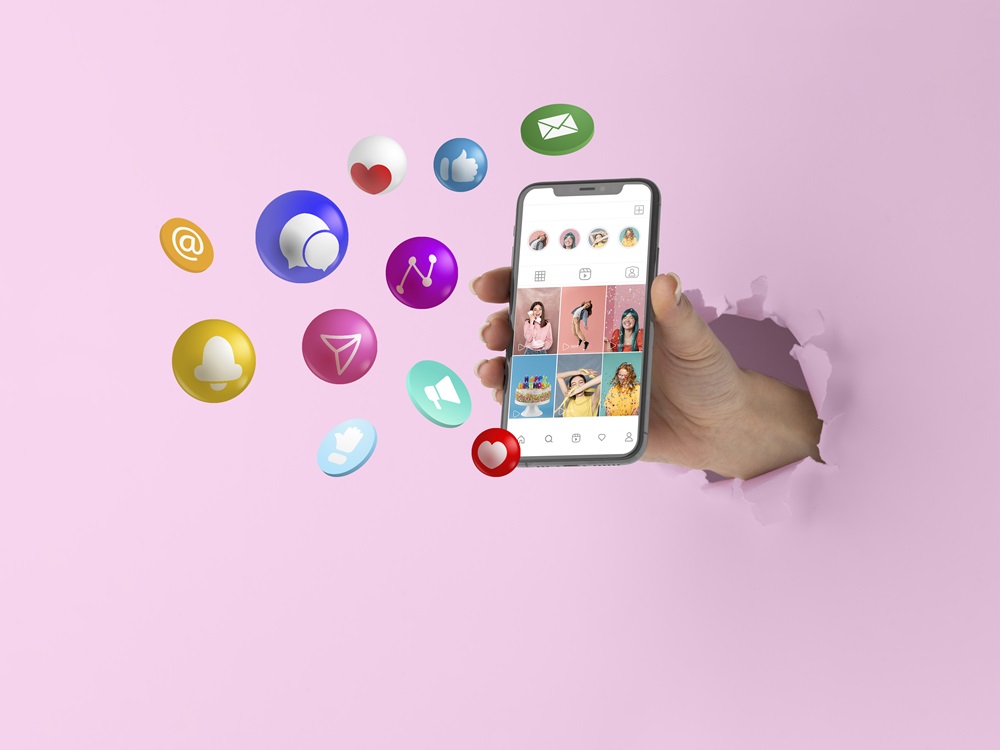In the modern marketplace, digitalization has become synonymous with evolution. As we’ve transitioned into a digital era, marketing has undergone a profound transformation, shaping the way businesses interact with consumers. The digitization of shops and the shopping experience has particularly demonstrated how technology can redefine the commercial landscape. This blog explores the advantages of digitalization in marketing and provides real-world examples in India of its impact.
Digital Marketing: What’s It All About?
In simple terms, digital marketing means using digital channels and tools to connect with consumers more effectively. It is not merely about having an online presence but integrating technology into all aspects of marketing to enhance the consumer journey and maximize efficiency. At its core, digital marketing is about connecting with customers in the right place at the right time, which, in today’s world, means meeting them where they are already spending a significant amount of time: online. Some types of digital marketing include social media marketing, search engine marketing, email marketing, mobile marketing, and influencer marketing.
Advantages with Real-World Examples from India
Personalization: Making Shopping About You
One of the primary advantages of digital marketing is the unprecedented level of personalization it offers. Digital marketing is like a personal shopper, knowing exactly what you like. It’s a game-changer in how businesses tailor their game to match your tastes and habits. Unlike the old-school brick-and-mortar stores, where everyone gets the same deal, digital marketing lets businesses get up close and personal with your preferences.
Take Amazon, for example. They’re like your shopping buddy who remembers everything you like and even what you glanced at that one time. By digging into customer data, they offer recommendations that feel tailor-made just for you. It’s not just about making shopping fun; it also nudges you towards that “Add to Cart” button more often. Did you know? Amazon’s recommendation engine is responsible for 35% of its total sales. Talk about knowing your customers!
Reach: From Local to Global
Digitization has expanded marketing reach, empowering businesses to connect with audiences globally. This digital reach is the superpower of being everywhere at once. It’s like a megaphone that amplifies your message far and wide, without the hefty price tag of traditional marketing channels. Thanks to the internet and social media, even a small startup can grab the spotlight alongside the big players. Digital platforms break down geographical barriers, allowing brands to mingle with international audiences, tailor messages to different cultures, and tap into new markets with ease.
Take the example of Zomato, with their catchy social media presence; they’re not just delivering food; they’re serving up a brand experience that sticks. They harness the power of user-generated content, like reviews and customer stories, which adds a personal touch and boosts credibility. This smart strategy has seen their orders skyrocket, especially during festive times, with a whopping 225% jump in order numbers.
Technology Tools: Making Marketing Smarter
Technology, like AI and automation tools, is transforming the marketing landscape, making it smarter and more connected. Think of these tools as your digital sidekicks – they help distribute content seamlessly, manage customer interactions, predict trends, and even personalise marketing messages. It’s all about working smarter, not harder. They’re all about boosting efficiency and effectiveness.
Some of the top marketing technology tools around the world include Salesforce for top-notch customer relationship management, HubSpot for all things inbound marketing, Google Analytics for insights into web traffic, Marketo for marketing automation, and Mailchimp for all things email marketing. These tools are the unsung heroes behind successful marketing campaigns, making them resonate and engage more effectively.
A great example would be JioMart’s tech wizardry with their WhatsApp shopping experience in India. They’ve created a buzz by offering an end-to-end shopping journey right within WhatsApp, blending convenience with innovation. The results? A 20% increase in average customer spend, a 582% surge in orders, and an impressive 733% jump in revenue in just three months. That’s the power of marketing technology at work!
Analytics: Harnessing the power of data
Ever wondered how businesses seem to know just what you want? That’s the magic of analytics in the digital marketing world. Analytics turn heaps of data into valuable insights, allowing businesses to measure how well their campaigns are doing and make smarter decisions. Think of analytics as the brains of the operation. They crunch numbers, spot trends, and decode consumer behaviours. This data-driven approach means businesses can fine-tune their strategies to what people really want. It’s a bit like reading minds, but with graphs and charts!
The Indian Premier League (IPL), for instance, uses viewer data analytics to customise their marketing efforts, which has led to record-breaking viewership figures.
Mobile Marketing: Tapping Into the Smartphone Era
Ready to jump into the buzzing world of mobile marketing? Here’s something to think about: India is home to over 750 million smartphone users. That’s a whole lot of scrolling, tapping, and app exploring happening every second! Did you know that mobile devices drive over half of the global web traffic? Yep, we’re living in the age of the smartphone, and businesses are getting super savvy about it.
For example, let’s talk about Paytm. They’re like the mobile marketing wizards of India. Paytm isn’t just about payments anymore; they’ve turned their app into an all-in-one hub for shopping, booking tickets, and even gaming. It’s like having a mini-mall in your pocket! This smart move has spiked their user engagement and transactions big time. It’s a classic example of how tapping into the mobile world can open up a whole new playground for businesses.
Influencer Marketing: The New Trendsetter
Have you noticed how influencer marketing is totally changing the game? It’s like having the cool kids in school talk up your brand. Influencers, with their armies of followers on Instagram, YouTube, and other platforms, aren’t just posting selfies; they’re powerful voices shaping what people buy and love. Did you know that a significant 72% of Gen Z and Millennials follow influencers on social media, underscoring the reach and influence of these personalities among younger demographics?
A homegrown Indian fashion brand, Bewakoof, has leveraged influencer marketing to create buzz and authenticity around its products, leading to high engagement rates and increased sales.
Conclusion: Embracing a Digital Future in Marketing
The journey of marketing in the digital age is not just a trend but a transformative shift, redefining how businesses engage with consumers. Digitization has levelled the playing field, empowering businesses, big and small, with tools for personalization, expansive reach, and strategic insights. As we peer into the future, technologies like AI and machine learning stand at the forefront, ready to revolutionise customer engagement.
Embracing this digital shift is crucial for businesses aiming to navigate the ever-evolving marketing landscape successfully. In this era of digital transformation, adapting to and leveraging these technological advancements isn’t just a strategy; it’s a vital step towards securing a thriving and sustainable future in the dynamic world of marketing.




